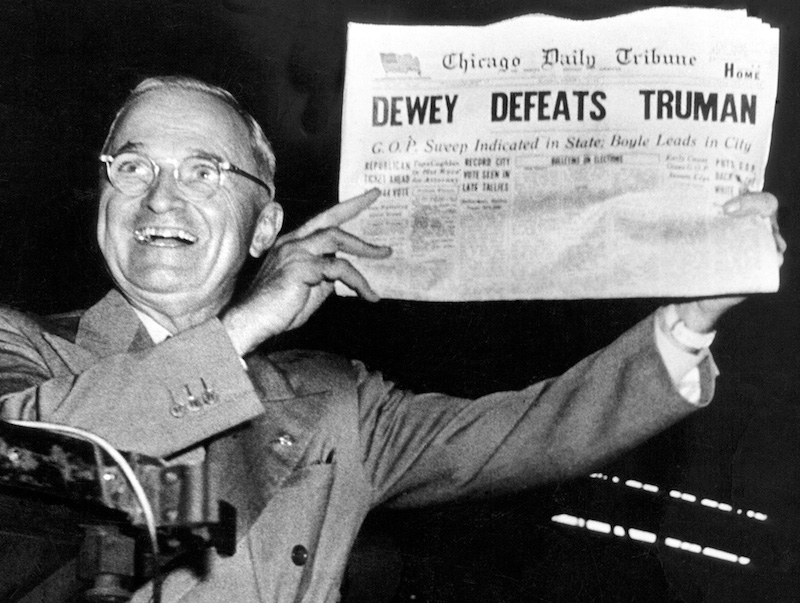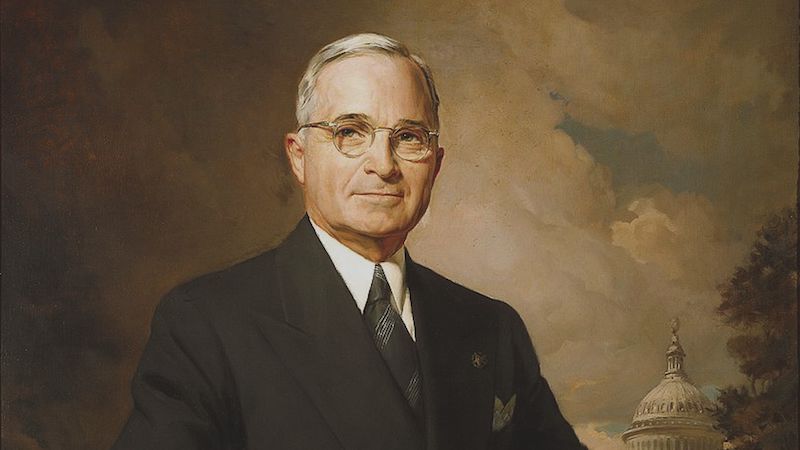Harry S. Truman (1945-1953)
Episode #7 of the course Greatest US presidents by Patrick Allitt
Harry Truman had almost no experience in foreign policy before suddenly reaching the White House in 1945. Over the next five years, he had to make vital decisions about the atom bomb, the early Cold War, and Korea. Despised by many of his contemporaries for his hard drinking, for his poker games in the White House, and for his un-presidential demeanor, he has since risen in historians’ esteem, particularly for his shrewd maneuvers in the international landscape of the late 1940s.
A Missouri farm boy by birth and a World War I veteran, he failed in business but rose through the ranks of the corrupt Kansas City Democratic machine under Boss Tom Pendergast. This was an unlikely pedigree for any future president. He became nationally popular during World War II, however, for leading a Senate anti-waste and anti-profiteering investigation of war industries. His visibility prompted Franklin Roosevelt to choose him as running mate in 1944, but they rarely met, and Truman was not privy to any major war-related decisions.
Inaugurated on the day of Roosevelt’s death in April 1945, he was soon required to decide whether the atomic bomb should be used against Japan, despite its unprecedented power. Fearing many more years of war and the prospect of high American casualties in an invasion of Japan, he approved the bombing of Hiroshima and Nagasaki. Japan surrendered.
Already it was clear that the Soviet Union, America’s ally during the war in Europe, was now a menacing rival. Over the next three years, Truman persuaded Congress that US forces should remain in Europe to counter the Soviet threat, rather than draw back into isolationism. He presided over the creation of NATO in 1949, the democratic Western nations’ anti-Soviet alliance.
Facing re-election in 1948, Truman’s chances of success seemed slim as his party began to fracture. Southern segregationists, disgusted by his appointment of a Civil Rights commission and his decision to desegregate the US military, created the “Dixiecrat” party, with Strom Thurmond as their candidate. Northern progressives under Henry Wallace (whom Truman had replaced as vice president) also split, dismayed by the new Cold War confrontation. The media all believed that the Republican candidate, Thomas Dewey, would win. The Chicago Tribune even ran the story of his supposed victory. Truman, on the morning after winning re-election, held aloft a copy of the paper with its headline, “Dewey Defeats Truman.” The moment made for one of the most famous photographs in US history (below).

Truman faced another vital decision in 1950 when North Korean Communist troops marched south, conquering almost the whole country and brushing aside feeble American and South Korean resistance. Was Korea a vital ally in the Cold War, deserving the full weight of American support? Truman decided it was, persuaded the United Nations to condemn the invasion, and then launched a full-scale counter-attack. Army commander General Douglas Macarthur surprised the North Koreans with a daring seaborne invasion at Inchon and soon liberated the South.
Another crisis came for Truman in April 1951, when General Macarthur criticized the president’s later war policy in an open letter to a congressman, counting on his status as a national hero to get away with it. Truman reacted by dismissing Macarthur for violating the principle that soldiers should never discuss politics in public and that the army must remain under civilian control. He then survived the widespread anger of Macarthur loyalists and investigations by both houses of Congress.
Truman was entitled to run for another term in 1952, but having already served nearly eight years as president, he followed the old precedent set by George Washington and retired. During his administration, the 22nd Constitutional Amendment was passed and ratified by the states, making two terms the limit for all future presidents.
Truman’s successor, whom we will meet tomorrow, was Dwight Eisenhower, who had become a national hero for his successful leadership of the European campaign in World War II that finally defeated Hitler.
Recommended book
Share with friends

